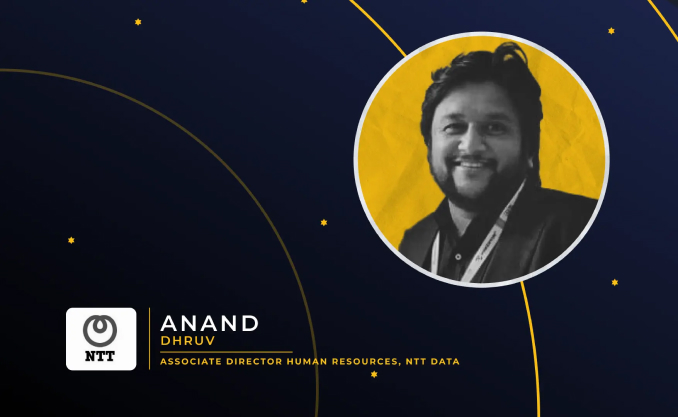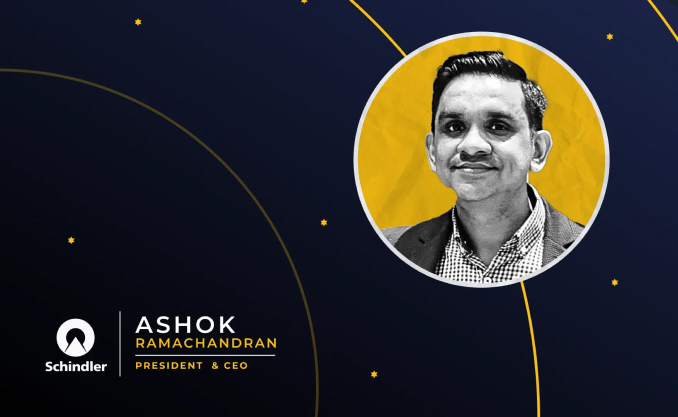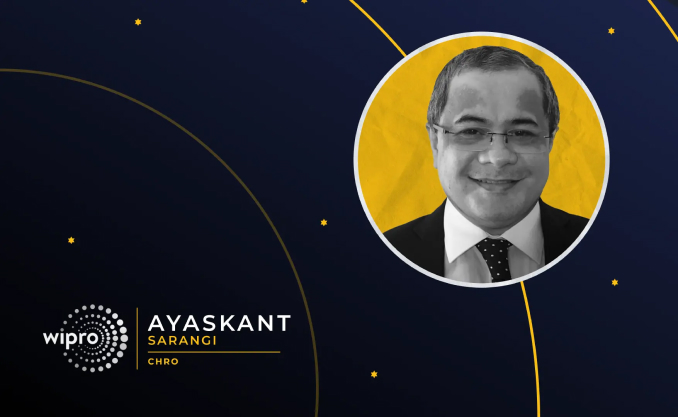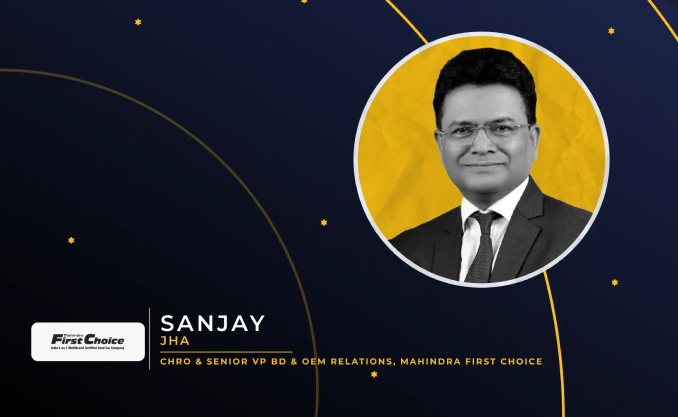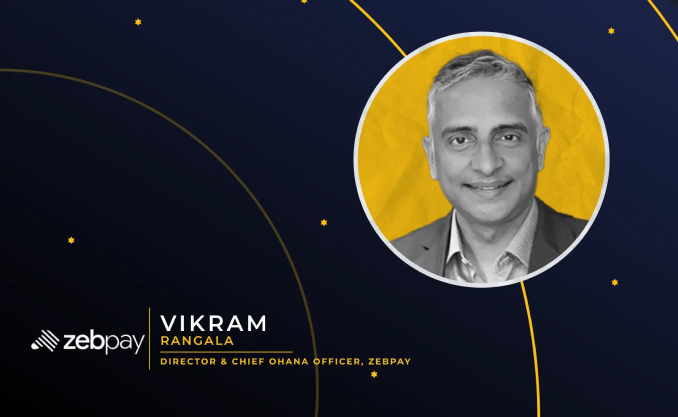Maya Shenoy started her career at a small boutique recruitment firm called Speed Consulting. She now works at Dvara Solutions as HR head. With about 10 to 20 years of experience in the HR space, Maya has been through the ups and downs of the job market.
Maya believes technology will play a key role in the future of hiring and recruitment but insists it will not replace the human touch as much as enhance the human element.
Maya points out that it is not just a team for the sake of three or four people working in a team, instead, people form a team as they trust and respect each other.
Table of contents
- About Maya Shenoy
- Influence of background and experience in HR on D&I at Dvara
- Challenges faced during the early days of the pandemic
- Challenges faced during remote work
- L&D initiatives
- Automated hiring solutions
- Productivity tools used on a daily basis
- Hiring trends in 2022
- Advice for professionals
Hey Maya! Before we begin, could you briefly our readers about yourself?
Yeah, sure. I’m a product of a lot of learning on the job and working in different large and startup organizations with over 10 years of experience now in the HR space. So, I started my career with a very small boutique recruitment firm called Speed Consulting, where I got the nuances of connecting with people and hiring. A great learning ground, I would say, because I am a recruiter at heart.
So, recruitment has been a common thread throughout from Speed to Oracle to Fintellix Solutions being part of scaling the organization, hiring in hundreds, probably thousands of people all across levels, across hierarchies, from people who are starting their career to the leadership positions at Oracle. Talking about Oracle Financial Services, Flexcube was their flagship product, the core banking product, which has extreme popularity across the world. It has been the number one product in the market globally for six years since then it has been growing.
Now, of course, there are other products as well, but it was a market leader for a long time. And after Oracle, I got the opportunity to head HR with Fintellix Solutions, which was into analytics and reports again in the banking space. So, when I joined the organization, it was 50 people. We grew up to about 550 people within the first few years, and then the whole ride of employee engagement and scaling and change management and T&D, organization development, diversity, everything past that took place. So, it’s been a great journey.
I’ve been a part of Dvara Solutions for the last three years. Now, as you rightly said earlier, a very similar journey of setting up HR ground zero, moving and growing the organization, going with the organization, hiring across levels and hierarchy, making sure diversity is present, the male-female ratio, and even otherwise D&A that we talk about to make sure that everything is kind of taken care of and we make sure we emphasize on it, we make our policies accordingly. So that’s been a journey. It’s been a wonderful rollercoaster, but a great journey nevertheless.
How has your background and experience in HR prepared you to be effective in promoting diversity and inclusion in hiring at Dvara?
Well, there is a very clear guideline. As an organization, starting from the very top and across the leadership team and then going down to leads and people who interview, there are clear guidelines on how we want to hire, and what kind of people we want to hire. Also how we want diversity to be the core of it. Though Dvara Solutions is part of Dvara Holdings, which is a much larger entity, and set up as a Chennai-based organization, there is a special focus on the male-female ratio.
And through our work surveys, we realized that there was one area where we thought we could do better as an organization. So, we have started focusing on women employees, and the issues that they face at the workplace. What is needed to make them comfortable? Whether it’s flexible work hours, whether it is maternity benefits, and related benefits or it is about empowering them with knowledge about managing their own finances or taking care of their own health. And the same has cascaded into hiring. The focus is on females in the technology space, because we do a lot of technology hiring.
This is the software product industry more than anything else, and the very basis of having women leaders is a big question. I mean, people come out of colleges in the probably same ratio, passing out engineering colleges. But when they reach organizations, when you look across the organization hierarchy and at the leadership, what is the ratio that you see.
So, there’s a great emphasis on empowering mid-level women employees, leaders, and managers, for them to take up the next level. So, all of that has been quite a focus in our organization and across my career.
What are some of the challenges that you faced as an HR professional during the early days of the pandemic?
Yeah. Well, I think not just me the entire world went through a change and we were all unprepared. There was so much uncertainty and there was so much fear. I think now we are so much more equipped to handle this. I mean, if there was a third lockdown, God forbid. But we have some expectations and we know how it may unfold or what precautions we need to do or what we need to take care of.
Initially, it was really scary. Especially the youngsters who are away from home, who didn’t have families around them, and they had gone through a very difficult time. Being alone and hearing all the news must have taken a toll on them. That was not very encouraging and very scary. So, we found the committee to manage this first, which is individual, mental, and physical wellness. And we let people know that we are there to speak to them at regular intervals and we connected different doors.
I think everybody was in the same boat. Like all of us know, some of our people, like many others, lost their very close family members. So we needed to work on two things, one is to get the work going, making sure the business runs and we are making the revenues that we were out there to make. But the second important thing is people, because if they are not well, then businesses can’t do well, right?
So, people are the core of everything that we do. Wellness is one thing, ensuring that they don’t get into depression is another thing. We got into online fitness classes, virtual connections, and daily stand-up meetings so that every day in the morning we meet each other and we encourage people to keep their videos on so that there is some sort of interaction even if not a physical meeting.
At least see each other, talk to each other, and understand from there, because so many times communication is not just about sharing information. It’s so much that goes into nonverbal communication. And that happens when you’re face-to-face. So, yeah, all of this, we sail through. The worst has passed us.
What challenges does your team face while hiring candidates remotely or even in a hybrid model? And if there have been any L&D initiatives that have helped Dvara in bridging skill gaps?
Yes, right. Hiring has been challenging through the pandemic because again, these were uncharted territory, which is virtual hiring, not seeing people or not meeting them, and not just going through the entire cycle of hiring, but also onboarding. So, all of it doing virtually has been a very new experience.
And doing it 100% of the time, somebody is out of time. So, you do a virtual meeting and then you meet the person. It’s not like that. It’s every hire, whether it’s on-campus or off-campus or it’s lateral, people with experience, leadership, hiring, everything happening virtually. That’s the new normal, if I may use that word. So, of course, it’s been challenging.
One, I think my team felt sourcing quality profiles was a challenge because suddenly the great resignation hit us. It was important for us to make sure that we are getting the right skills and the right talent. How do we verify that was the next question. Because one thing is to put it on the resume. And second is when you’re talking to people when they’re writing the code. For example, through the assessment process, we can see how genuine it is. Again, we had faced some of those issues as well where it was somebody’s resume and somebody else was taking the interview. And these kinds of things where even a test expected for somebody was attempted by someone else got a lot of technology involved.
The companies will have to adapt to use technology, advanced technology for quality, sourcing, or interview interactions, for assessments, whether it is a cognitive assessment or whether it is behavioral assessment or culture fit. All of this, it’s very important. I think technology will be the core of managing people and hiring, again, the skill gap. It’s the next big issue. And how do we upskill people? How do we reskill people? So as an organization, we are dedicated to that.
We are about 65 people or so right now. When we used to come together, we dedicated 2 hours a week for the whole organization to do nothing but learn. And so, the topic got picked up from whatever we felt was a need, whether it was on technology or product or function or the domain or what’s the latest in the market and we all sat down to learn irrespective of our function. That was one way to kind of get people all together to understand the space that we are in, the technology that we use, the product that we have, what our customers are saying, the need of the customer. So that was one.
And now as often not on a weekly basis, but once in two weeks, we have a dedicated time for learning. And besides that, people are encouraged to take up courses that will help them go to the next skill. Or learning another skill could be through online courses, reimbursements, and stuff. So, there’s a very clear focus on development and learning.
Since you mentioned technology and how it's gaining momentum in recruitment, does Dvara Solutions prefer automated hiring solutions?
Currently, we do not have automated hiring solutions at this point in time. But if you were to ask me what’s the future of hiring and recruitment and how our organization is going to go about it, whether they’re small or large, I would say technology will play a key role. That’s a smarter and faster way of doing things. Matching skills and matching experience and eliminating those who do not fit to give you that quality funnel. Of course, it will not replace the human touch.
It will not replace you connecting with people to make them understand the purpose of the organization. Because no matter what you say, no matter what happens in the churn or the attribution, people do connect with the purpose of the organization. People do connect with the leadership of the organization. They want to do quality work. They just don’t want to keep jumping. So how do we give them what they are looking for from their next employer or their next career move? And that will happen through human touch or people talking to people.
But when it comes to making sure that things are moving fast, your sourcing is quality, you can predict joining based on certain patterns. There will be analysts. There will be data that will back it up. So, I think that’s the future of hiring, at least from where I see it.
What are some of the productivity tools that you're currently using to keep yourself on top of all things in your day-to-day work?
It’s more of Excel sheets for me, right now. It may be probably old school but I think it’s very important for HR professionals and I’ve learned that through my experience. It’s important to be able to interpret data and make sense of whether you create your dashboards or Excel sheet.
If you can’t read through those, then it’s difficult for you to make certain predictions or know which way the organizational culture is going. So, Excel is there. We have our in-house tools as well which we use and for ESOPs we have something different. So, there are a couple of these tools that we are using which help us but nothing groundbreaking right now. They’re all very basic and we could definitely do much better.
If you had to share three hiring trends that you're noticing currently or keeping up with what would they be?
I think one is definitely because of the pandemic. What has happened is that it changed a lot at the hiring and work culture levels. We never thought we could be sitting in India and somebody who’s from Jim Corbett sitting could be working for our clients in Tamil Nadu. We would have never thought so. That’s one. And I think it’s here to stay it’s not going to be a phase. So remote working, flexible working hours, even if we say come once or twice a week to office, that means people have to come back to their work cities which may or may not happen.
Instead, I think what the organization should do is to plan something for two days and get everybody into the city, those off-sites that you call. But everybody needs to get together physically, now that we can reinstate the purpose of the organization, the vision, mission, and values of the organization. Because when they go back, that common thread is among those people who are working from various locations across.
Hiring will happen from anywhere and everywhere. So, it’s just both good and bad. It’s actually more than bad and good, because of great opportunities. Now people can go across boundaries and look for the opportunities that they always aspired for. Employers can hire from anywhere. I mean, that has never happened before. That’s exciting.
For example, the work culture in Mumbai is slightly different from the work culture in Bangalore. But now given that people can work from anywhere, it becomes a kind of a global culture because we are not saying, hey, you log in at nine, you log off at five. You’re not saying that people want flexible work hours. They want to work probably late at night because, for example, there are people who have smaller kids at home who needs care. So, it’s not that only mothers have to take care of now. Fathers are equally involved in raising children.
When kids are home and this is vacation time and there’s a lot of noise in the background or they are active and people would prefer to work once late in the evening, once the kids are tired. And that is when they want to work and do the thinking. The next would be getting up early and working on sending emails or connecting with their team members and staff. So, I think things are changing and that’s how that’s going to be. The other hiring trend that I see probably will be a rise in contract writing and in gig work. I think there will be a rise because of people and given the great resignation that paved a way for people.
The whole industry is going through some sort of churn right now. So, what does that mean? People want to holiday more or take light work or work when they have time. So, they take up assignments and they deliver on that and then they take up another assignment with another company and they deliver on that. So that is going to be on the rise as well.
I think the focus is shifting from an input like what you bring to the table, to output as to what you finally deliver. It doesn’t matter whether you’re putting in 5 hours or 8 hours or 12 hours as long as you’re able to deliver what is expected out of you promptly with the best quality.
That is a paradigm shift across timelines which has become even more crucial now because you know that the other person is maybe working from home or partially working from home or partially working from the office. So, deadlines have become even more significant because you always have a timeline whether you work from home, or you are taking breaks in between. As I mentioned, it’s not about the input, it’s about the output.
And customers understand that too because we are all in the same boat. So, it’s not going to be or it’s not that it is hampering in any way. I think people are a little more open and receptive and they understand each other’s issues so that’s also building a lot of trust among people.
Lastly, if there's one piece of advice that you want to give HR professionals, what would it be?
Well, I would say teams are not teams because they work together but because there is respect, trust, and people who care for each other. It is important that HR professionals believe this or understand this because creating or fostering a culture that is positive and that makes people like each other and like to work in that company is essential. Motivate them.
The other thing that I would like to say for HR professionals and including myself is to be a child, be open to adapting. If you get stuck, that’s okay, this is the only way. Because like I was saying, technology will play a larger, bigger, deeper significant role in days to come and we should be open to taking up that understanding and adapting that right. So yeah, this is what I would like to say.



